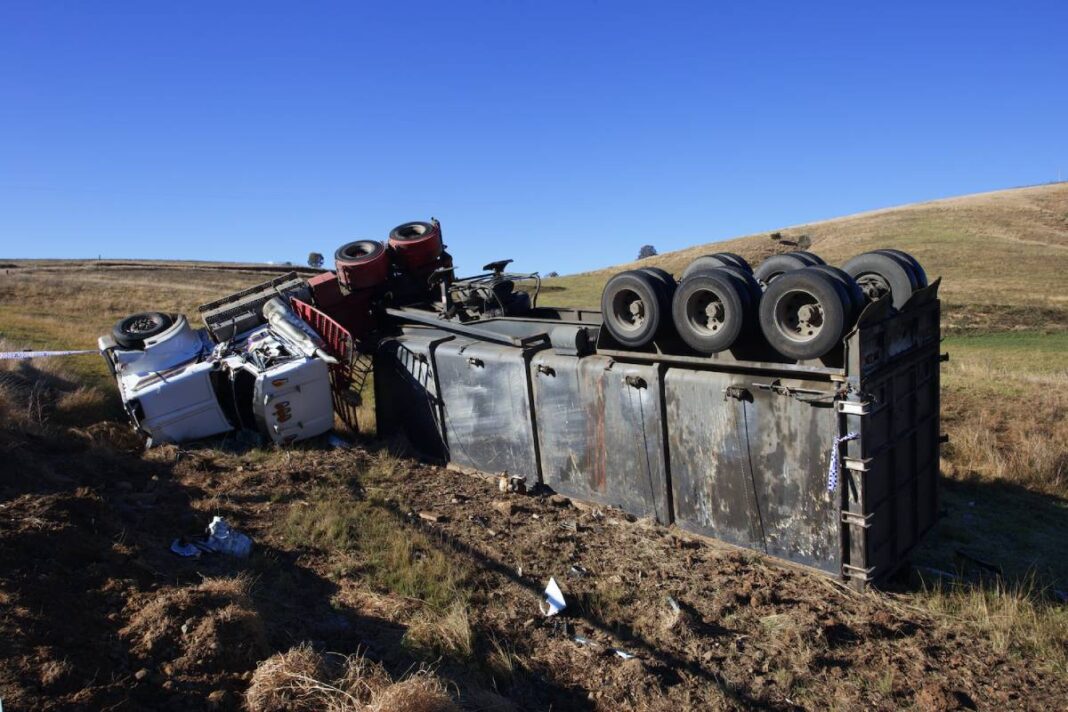Your attorney will need to prove fault for you to be compensated. It is necessary to prove that the responsible party had a duty of caring towards you, breached it, and directly caused your injury.
In the case of a trucking accident, there may be multiple parties liable. These include the truck driver, the trucking company if they forced the driver to work beyond service hours or violated other internal policies, and even truck manufacturers if they produced faulty parts.
Table of Contents
Duty of Care
Truck drivers and their employers owe public safety to those they share the road with. When these parties breach their duty of care, causing an accident that leads to injuries, they can be held liable for their actions. Your attorney will examine evidence from the crash site and other information, such as the truck driver’s employment records and company data, to determine what elements of their duty were breached.
For example, if the truck driver ignored federal hours-of-service rules and fell asleep at the wheel, causing a crash leading to injuries, they can be held responsible for their negligence. However, you must also prove that their breach of duty directly caused your losses. The Denver truck accident lawyer – Lampert & Walsh, will use the same evidence to demonstrate causation, including proof of your financial and non-financial damages. This step requires demonstrating a direct causal relationship between the truck driver’s breach of their duty and your injuries.
Breach of Duty
Establishing negligence is key to pursuing compensation through an insurance claim or lawsuit. There are four elements to prove to hold someone liable for the harm they caused.
You must first prove that the defendant had a duty to you. It is easy to confirm this element because truck drivers have a duty of care to other road users to minimize collision risks and drive safely. You can also hold a trucking firm or truck manufacturer responsible if you prove they did not inspect or maintain the vehicle.
You must then prove that the breach of duty caused your injuries. You must provide detailed documentation, such as medical receipts and bills, a letter showing that you missed working hours and proof of noneconomic damages, like pain and discomfort or loss of consortium. Expert witnesses are usually the best people to provide this evidence.
Causation
You must prove four things to receive compensation for your injuries in a truck crash. These are duty of care, breach of this duty, causation, and damages. A truck accident lawyer can establish these elements. Evidence such as eyewitness testimonies, maintenance records, driver’s logs, and traffic violations can be used to prove a breach of duty.
You must be compensated if you can prove that the defendant breached their duty and caused you to suffer injury or loss. You must perform a proximate-cause analysis to do this.
Truck drivers often cause truck accidents, but other parties, including shipping companies and employers, can be at fault. Identifying all parties liable to help victims receive full compensation for their losses is important. Included are medical expenses, lost wages and emotional distress. Punitive damages may be awarded to the injured victim.
Damages
Many trucking accident cases involve multiple at-fault parties. This is why it is important to have an attorney on your side who can help you build a strong case to protect the value of your damages.
For example, trucking companies may be liable when they condone a truck driver’s violation of Hours of Service regulations or other trucking laws. The truck’s “black box” may also provide useful evidence in these cases, as it can provide data on the time the trucker was driving before a crash and other relevant information. You can also use other types of evidence to prove economic damage, including medical bills, lost earning potential and loss of enjoyment in life. Your attorney can use pay stubs or other financial documents to prove these costs. Some victims may also be able to seek punitive damage awards, which punish defendants for gross negligence or malicious intent.



